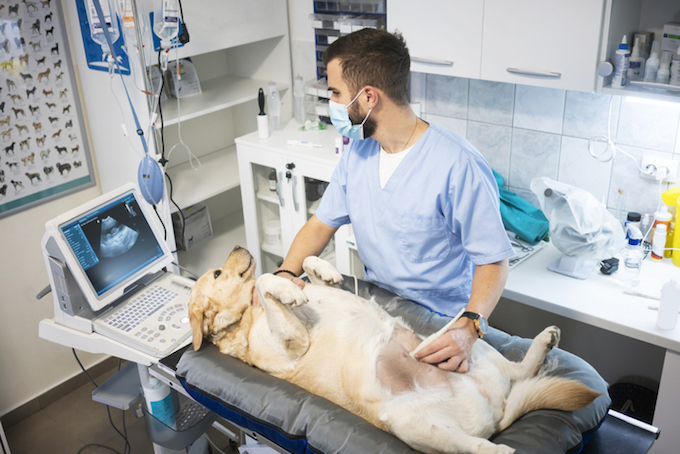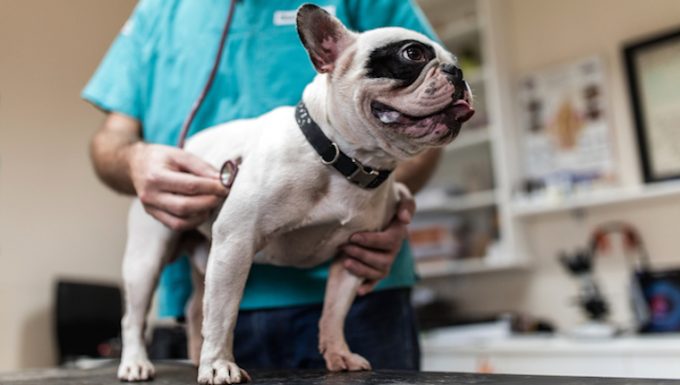Apudoma in dogs is a rare type of gastrointestinal tumor. The condition often produces the symptoms of ulcers and acid reflux.
Unfortunately, the tumors are often cancerous. Generally, the condition affects older dogs more than younger puppies.
If you see the signs of the condition in your dog, then get to a veterinarian for a proper diagnosis and treatment.
Here’s what you should know about the symptoms, causes, and treatments for the condition.
Symptoms of Apudoma in Dogs
The condition produces quite a wide range of symptoms. For instance, some of the most common symptoms include:
- Weight loss
- Vomiting
- Loss of appetite
- Stomach pain
- Poop with blood in it
- Fever
- Ulcers
- Acting lethargic
- Drinking more water than usual
- Acid reflux
- Depression
Causes of Apudoma in Dogs

The cause of the condition is unfortunately unknown. However, lifestyle and diet are thought to be factors. Additionally, the condition may be hereditary.
Also, older dogs seem to develop the condition the most.
Treatments for Apudoma in Dogs
Firstly, your vet will ask about your dog’s symptoms. Secondly, your vet will ask about your dog’s full medical history. This will help rule out other conditions.
Thirdly, a full physical examination will be carried out. Also, blood and urine tests will be taken. The subsequent results can show if your dog has an iron deficiency.
Generally, an ultrasound can show any tumors in your dog’s stomach.
Treatment focusses on removing the tumor. Your vet will advise whether this is a safe process for your dog. Unfortunately, the condition is often diagnosed quite late.
Otherwise, treatment will aim to reduce your dog’s pain and symptoms. Your vet will also advise on any lifestyle changes that can make your dog more comfortable.
Have you ever cared for a dog who suffered from this condition? How did your vet help your dog recover? Let us know in the comments section below.









